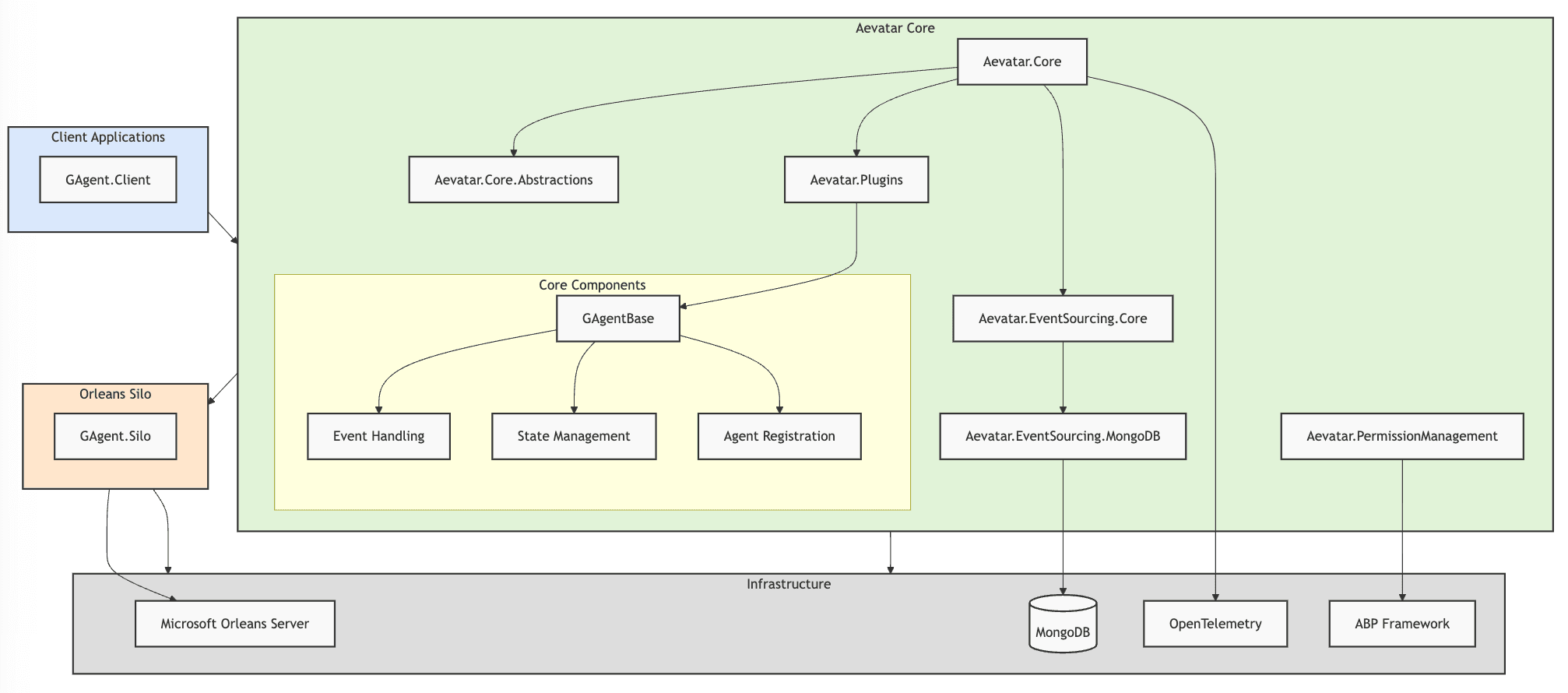aevatar-Framework
Overview Architecture Documentation for aevatar Framework#
Repos: https://github.com/aevatarAI/aevatar-framework
Introduction#
The aevatar Framework is designed to facilitate the development of intelligent agents that can interact with various environments and perform tasks autonomously. This framework provides a structured approach to building, deploying, and managing AI agents.

High-Level Architecture#
The architecture of the aevatar Framework can be divided into several key components:
Core Components: These include the foundational classes and interfaces that define the behavior and capabilities of agents.Agent Interfaces: Interfaces like IAIGAgent define the contract for agent behavior, ensuring consistency across different agent implementations.Publishing Mechanism: Components like GAgentBase.Publish handle the communication and publishing of agent actions and states.Key ComponentsGAgentBase: This is a base class for agents that provides common functionalities and properties. It may include methods for publishing actions and states to other components or systems.- PublishAsync Method: This method is responsible for asynchronously publishing the agent's state or actions to a designated endpoint or service.
IAIGAgent Interface: - Defines essential methods that any AI agent must implement.
Data FlowAgent Interactions: Agents communicate with each other and with external systems through well-defined interfaces and methods.Event Publishing: Agents publish events and states using mechanisms defined in classes like GAgentBase, which can be subscribed to by other components.Design ConsiderationsScalability: The framework is designed to support multiple agents operating concurrently, allowing for scalable solutions.Extensibility: New agent types can be easily added by implementing the defined interfaces.ConclusionThe aevatar Framework provides robust architecture for developing AI agents. The use of interfaces and base classes facilitates a modular and extensible design, enabling developers to create intelligent agents efficiently.
Edited on: 3 March 2025 12:00:59 GMT+0
